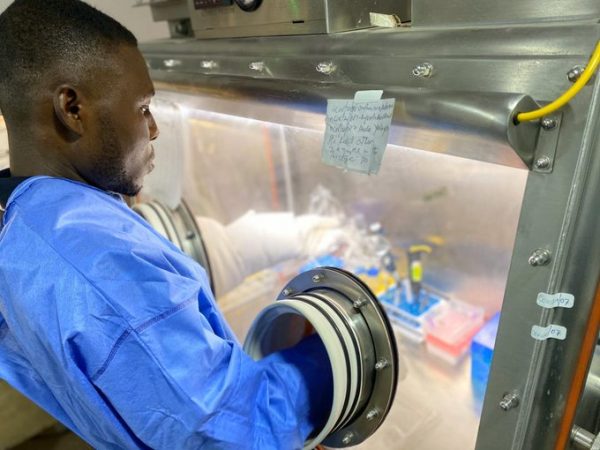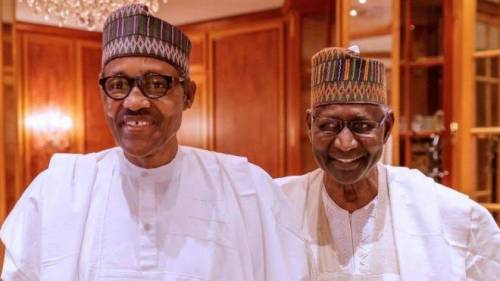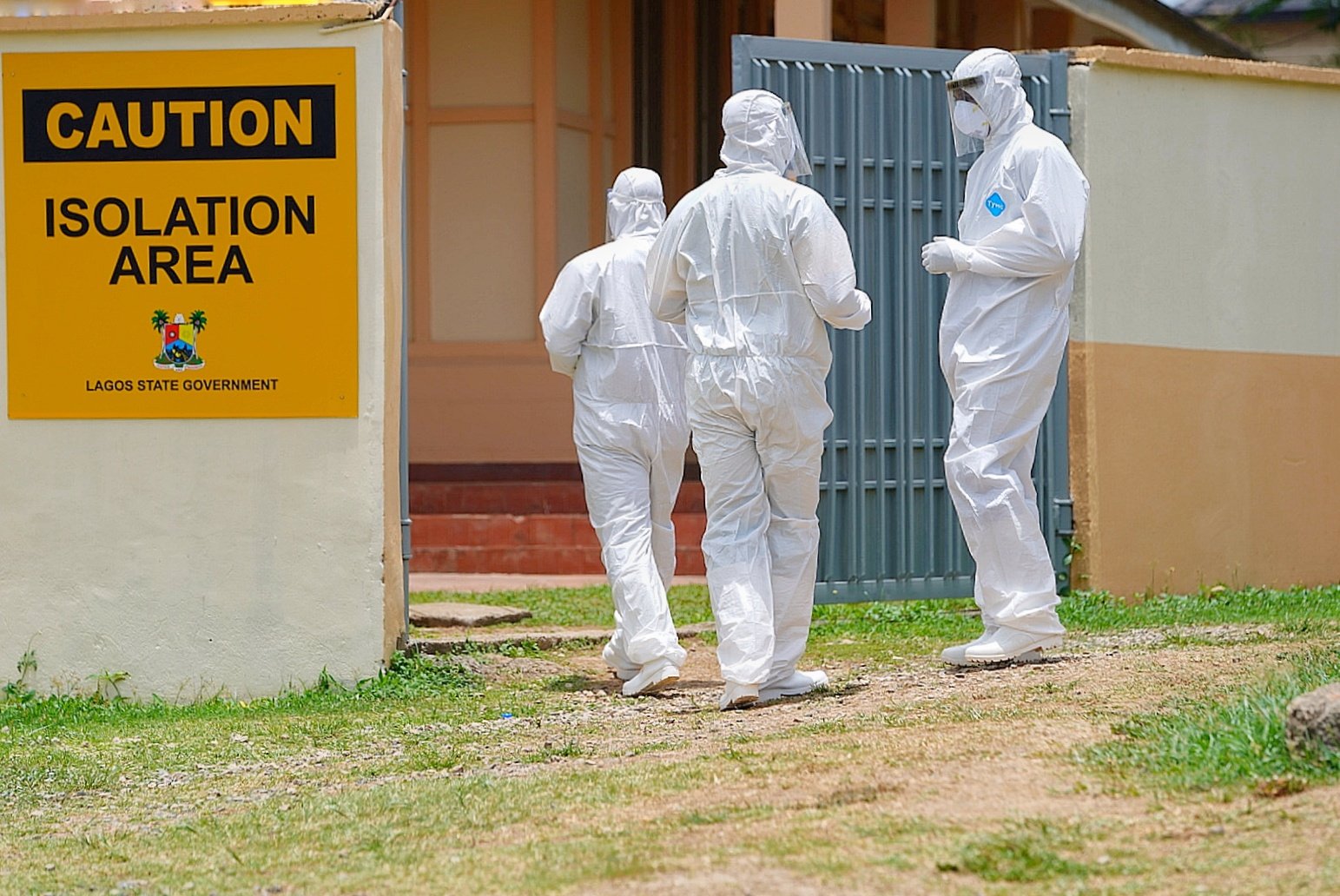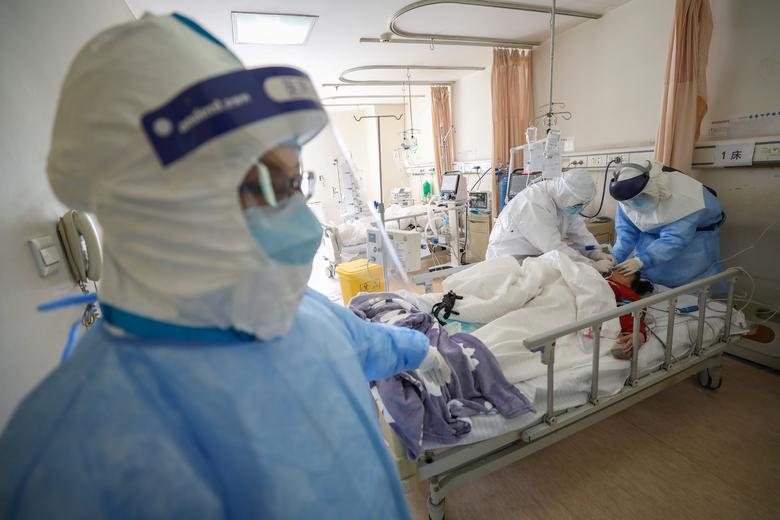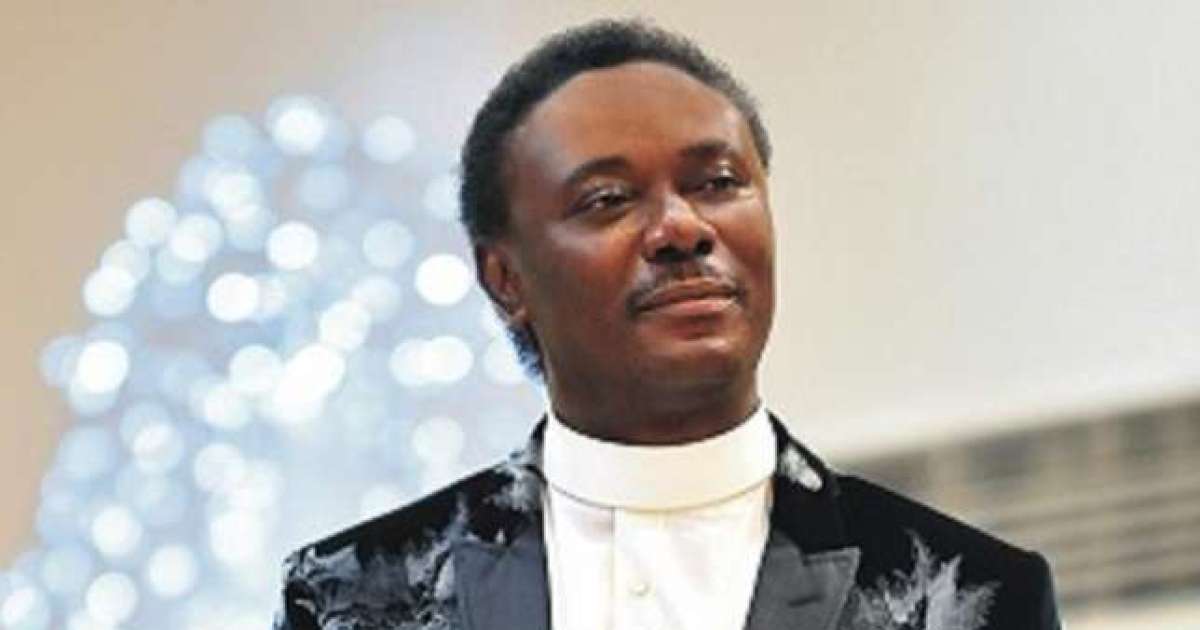For most of the world, a return to some normalcy is an inevitable logic as coping with the coronavirus becomes part of a new normal. Throngs of people in face masks on the streets, public parks, markets and airports will no longer evoke consternation or surprise. National economies just have to reopen in the knowledge that the pandemic has shown its worst face.
We now know that it can kill people in thousands. It makes many people ill and may necessitate unusual hospitalization. It forces businesses to shut down and fire many people. It can stretch healthcare facilities where they exist and compel governments to seek relief for distressed populations. Most importantly, it has exposed the naked underbelly of incompetent governments and reaffirmed the authenticity of genuine leaders and resilient states. In one breadth, a global calamity has come with political, economic and social consequences. In short, an unexpected virus has written itself into world history in less than half a year.
The logic of urgent reopening is a simple one. It is rooted in the imperative of collective survival. Further infections and loss of lives are inevitable. They are the contingent costs of ensuring the continuity of society and the survival of nations. The management of the pandemic as a public health emergency has also become one of the various contingencies of collective living in the 21st century. It may have become part of the new curriculum of governance in most countries. What needs to be a matter of concern for public policy thinkers, however, is the consequential aftermath of the pandemic as the greatest single affliction of humanity since after the Great Depression and the Second World War.
Wars and major pandemics in human history have marked turning points for nations and societies. Such turning points can present options between renaissance and damnation or hasten athe descent into apocalypse and national unraveling in some cases. For Europe and the West, the Great Depression fired great isolationism and nationalism with the rise of fascism and the onset of World War II as a political consequence. There was also a challenge to Western greatness in the birth of the New Deal in America. In Europe in particular, depressed lives and prolonged suffering encouraged the rise of demagogues and autocrats riding the crest of national renewal to further assault tormented collective psyches.
Africans who went to fight in the second World War returned to the reality of empty days and tormented lives. Some picked up the pieces while others went beserk, driven overboard by the futility of not knowing what to do after a youth spent fighting other peoples war in far away lands for causes they never could understand.
For Nigeria, the end of the Civil War in 1970 was one such turning point. The choice was between national reconciliation and renewal on the one hand and a continuation of the campaign of hate and blood letting on the other. With the benefit of wise counsel, Yakubu Gowon chose differently. He sought to heal the nation and build a new national order designed to replace divisive regional blocs with the hegemony of a strong central government. That new order fired some damage repair and post war national development. The task of nation building was left hanging hence the afflictions of the present polity.
It has been established that the quality and outcome of nations’ success in tackling the Covid-19 emergency has been a reflection of the quality and capacity of governments. In a recent essay in Foreign Affairs magazine, Francis Fukuyama wrote: “The factors responsible for successful pandemic responses have been state capacity, social trust, and leadership. Countries with all three…have performed impressively, limiting the damage they have suffered.” That is how come that New Zealand and Iceland are now virtually free of new cases of Covid-19 just as the incidence has drastically declined in places like Denmark, Finland, Norway and even Germany to a large extent. East Asia has done even better than the core West of the US, Italy, France and the United Kingdom.
The post covid-19 outlook for Nigeria would be first a reflection of the way our government responds to matters of urgent national importance. More immediately, it would be an extension of the management of the pandemic by the Buhari government. Typically, the approach of the Nigerian government has been a classic civil service method of the Nigerian deep state. A presidential task force was set up and in liaison with the National Centre for Disease Control (NCDC) were handed the responsibility of managing the crisis. Scientific input has been scant as there are hardly any credible scientists in the task force. Not even the universities, teaching hospitals and research institutes were initially involved in the management of the pandemic.
Even now, no comprehensive national testing protocol or regime is in place. Test kits largely a rarity in most states just as isolation centres are few and far between. National hospital bed space as a function of the national population is a sorry figure. Even the very initial response at the level of national psychology was abysmal as the president needed to be nudged by the force of public opinion to address the nation on the emergency for the whole of two weeks. Even in subsequent addresses, there was scant recognition of the immense potentials of Nigerian researchers and experts to seek homegrown solutions to the pandemic. In places like Lagos and Abuja where the pandemic struck most viciously at first, the federal government merely hurled money at the virus. At the state level, governors quickly turned the virus into a weapon of political showmanship and grand standing.
The NCDC presents a different category of public service conundrum. A previously unknown agency with scant preparation for a major national emergency found itself in the middle of a chaotic emergency. The Covid emergency has found the agency trying to cut a public relevance, deal with an emergency and also strike some international respectability. That is hardly an easy combination. But in doing so, the NCDC would pass for the most unscientific infectious disease control organization in the world. Its statistics are dodgy just as its predictions are more of scare mongering. Daily figures of infections, deaths, hospitalizations and discharges oscillate in a wild manner that bears no relationship to the efforts being canvassed. While for instance the centre insists that the total death toll so far from Covid-19 is somewhere under 400, it admitted only a few days ago that 60% of 1000 recent mysterious deaths in Kano were the result of Covid-19. That should mean a casualty figure of 600 from Kano alone in one swoop. But the national toll remains 400!
Playing politics with death and disease figures is not exactly the best testimonial for an agency established to provide science based solutions to the possibility of infectious disease outbreaks. Nigeria’s approach to the Covid-19 emergency has had the trademark lack of coordination and synergy between state and federal governments. Looking ahead, the outlook is not an exactly hopeful one. It will be hard to determine at what point the Nigeria Covid-19 curve flattens or when we sink deeper into the pandemic. And yet the economic survival of the nation depends on the imperative of reopening the economy as soon as possible.
The immediate economic consequence of the pandemic in Nigeria is a priority concern to the ordinary citizen. The most urgent impact as has been demonstrated by the US experience is the loss of jobs and an epidemic of unemployment. Without a social safety net, unemployment is by far a more lethal epidemic than even Covid-19. Unemployment will swell the existing sea of poverty and worsen the pressure on resources. The World Bank has just increased our knowledge of what we already know. Nigeria is an epicenter of world poverty along with only two other countries- India and the Democratic Republic of Congo. Prior to Covid-19, Nigeria had accepted its place as the headquarters of global poverty with an estimated poor population of nearly 100 million. That simply means that so many Nigerians make do with $1.9 a day. That is about N700 in local currency. In the aftermath of Covid-19, the prospect of job losses, collapsing exchange rate, failed businesses and loss of oil revenue will move the poverty needle from abject to desperate and absolute poverty.
The specter of unemployment will rise to frightening proportions in the aftermath of Covid-19. Vice President Yemi Osinbajo, a man not known for frivolity in his pronouncements on public policy, was recently quoted as indicating that over 43 million Nigerians will lose their jobs by the end of this year partly due to the ravages of the corona pandemic. This is a frightening prospect in a nation that has an estimated 100 million abjectly poor people. This outcome is inevitable as some small and medium scale businesses will fail to return to business after the Covid-19 emergency, having eviscerated their capital during the lockdown. Businesses that did not enjoy any protection from government in the days of the emergency cannot be expected to carry the burden of staff they can ill afford to pay or keep employed. An inevitable contraction in the demand for goods and services will inevitably lead to the contraction of businesses.
An already over burdened economy will sink further into more debts as President Buhari returns ever so often to a pliant National Assembly for authorization to borrow even more dollars. The already bulging public sector will gulp even more resources as the administration lacks the will to trim the work force or rationalize the size and structure of the government. Add to that the prospect of early preparations for national elections in 2023 and the economic prospects of Nigeria come into sharper relief.
At the level of states, a drastic reduction in monthly federal allocations to the over dependent states will force over 90% of our 36 states to default serially on salaries and recurrent obligations, leaving almost nothing for any form of capital expenditure. Increased economic insecurity at the various levels of government will fire up a tradition of public sector corruption as more public officials loot the till to prepare for a rainy day that is already in place.
The end of every great dislocation in history marks the beginning of new tendencies. One of them is the rise and proliferation of desperate beliefs and extreme religions. At the social level, past pandemics have deepened the sense of apocalypse, fueling the rise of extreme cults and beliefs borne of extreme anxieties caused by prolonged suffering and uncertainty. That is how come the ground was prepared for the rise of fascism in Europe after the Great Depression.
In Nigeria, as social activities resume and religious gatherings gather full steam, end time Christian ministries and apocalyptic muslim zealots and fanatical salesmen of all hues are gearing for a field day. The uncertainty and fear in the hearts and minds of men and women will elevate the urgency of rapturous ending to the level of a creedal inevitability. People may need to pay for divine intervention to be saved from the next pandemic as only God has the knowledge and control over matters that pass human understanding. The unknown and unknowable is the breeding ground for unfounded prophesies and transactional proselytizing.
In the poverty and desperation of the post covid days, the present atmosphere of insecurity may turn out a mere rehearsal for the fire next time. Criminal exploits and violence may become more daring and bloody while the police is outgunned by hellish gangs powered by a mixture of desperation and survivalist urgency. The signals are already on display. Armed robbers have recently dared the lockdown to stage bloody bank robberies.
Worse still, an epidemic of rape has exploded across the nation as repressed libidos seek unusual escape in the form of perverted sexual behavior. The possibility that these aberrant behaviors will spiral as the grind and grip of poverty increases is clear and ever present. Even before the covid emergency, the Nigeria police has had to deal with an increasing spate of domestic violence and sexual assault cases, cases that were previously rare.
Politically, we are in the place of diverse possibilities. A new generation of populist demagogues may now arise. Extreme poverty will further empower the rise of political thugs to rise unchallenged as aspirants to leadership as money and violence will overtake other determinants of political ascendancy. An already rigged political process controlled by decadent and dysfunctional parties will facilitate the entry of every political aspirant that happens to have the only factor in desperate demand, money no matter its source.
The collapse of oil as a source of state revenue will legitimize illicit financial flows from sources as diverse as narcotics, human trafficking, computer fraud etc as sources of capital in a political industry where actors reward themselves over and above considerations of the common good. Our political and social landscape may look more like Mexico as we approach the political season of the post Covid era. Political thugs will be mostly armed gangs, roaming freely in hunts for the opponents of their ‘bosses’.
Armed gangs will roam freer than they do presently while kidnap rings will morph into cartels fuelled and powered by uncontrolled access to arms and the ready availability of multitudes of free lance killers drawn from the army of unemployed and the children of hell unleashed lately from the trove of Almajirin children turned foot soldiers of the devil.
The more positive political possibility is also available but remote. There is a possibility that the pandemic has exposed the weak social content of the present governance system. That realization could encourage the populace to seek alternative social democratic alternatives in their political choices. This of course presupposes that the aspirants to political power understand the forces at play in the society or care about the social consequences of present circumstances and tendencies.
A vision of apocalypse in the days ahead will not be solely the consequence of the Covid-19 pandemic. The bleak picture is perhaps more a consequence of the divisions and epic inequality that has been aggravated by Mr. Buhari’s two terms of shambolic management, divisive politics and illiberal flirtations. For Nigeria, Covid-19 may not quite graduate into a historic milestone. But it could be a catalyst for a rejection of the present stasis.
